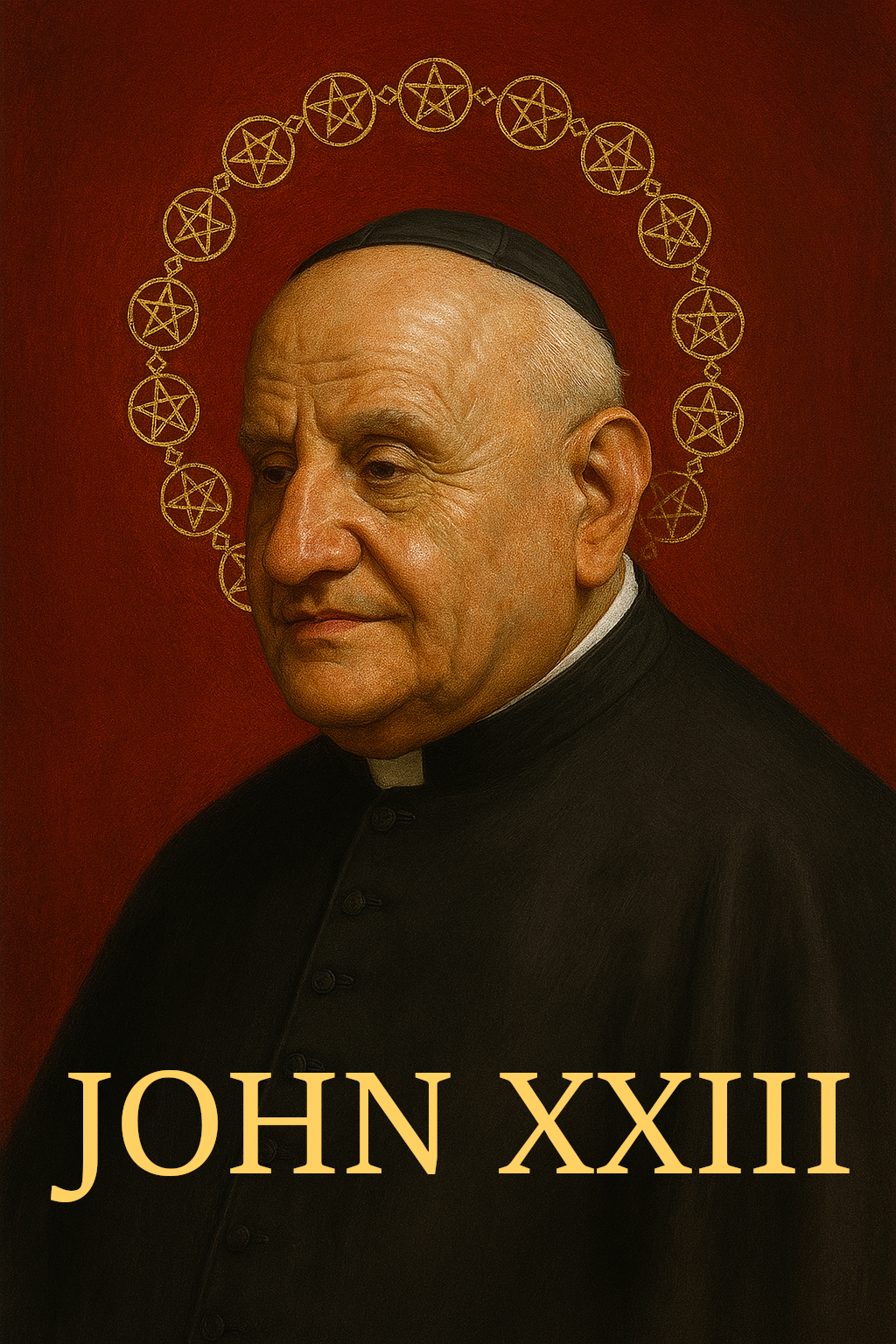Antipopes of the Antichurch



















Timeline of this heretical pontiff
Encyclical Letters
+ 15 posts1959
+ 7 posts1961
+ 4 posts1962
+ 2 posts1963
+ 2 postsApostolic Exhortations
+ 3 postsApostolic Constitutions
+ 93 posts1958
+ 6 posts1959
+ 87 postsMotu Proprio
+ 15 posts1958
+ 1 posts1959
+ 1 posts1962
+ 11 postsApostolic Letters
+ 151 posts1958
+ 4 posts1959
+ 63 posts1960
+ 78 posts1961
+ 1 posts1962
+ 4 posts1963
+ 1 postsSpeeches
+ 99 posts1958
+ 2 posts1959
+ 26 posts1960
+ 29 posts1961
+ 16 posts1962
+ 24 postsMessages
+ 6 posts1959
+ 4 postsHomilies
+ 4 postsLetters
+ 152 posts1958
+ 1 posts1959
+ 48 posts1960
+ 32 posts1961
+ 31 posts1962
+ 30 posts1963
+ 10 postsNot categorized
+ 1 posts1958
+ 1 postsNews feed


Ioannes XXIII and the Cult of Clerical Sentimentality (1959.12.16)
The letter of Ioannes XXIII to Maurilio Fossati on the commemorations of St Joseph Cafasso is a brief panegyric: it praises Cafasso as a model priest, educator of clergy, consoler of prisoners and the condemned, and uses his centenary as an occasion to exalt priestly associations under episcopal guidance as supports of holiness, patience, diligence, and social healing, culminating in a wish that “the law and love of Christ” safeguard individuals and communities, sealed with the so‑called “Apostolic Blessing.” From the perspective of integral Catholic teaching, this apparently pious text is a polished veil: a clericalist, sentimental manifesto of the nascent conciliar sect, exploiting an authentic saint to legitimize a new, man-centred, naturalistic religion.


S. Paulus Apostolus (1959.12.15)
John XXIII’s letter “S. Paulus Apostolus” (15 December 1959) is a brief exhortation addressed to Caesarius D’Amato, encouraging commemorations of the 19th centenary of Saint Paul’s arrival in Rome. It praises the Roman faithful who welcomed the Apostle, urges solemn celebrations and conferences to honour Paul’s person, doctrine, and martyrdom, and stresses Rome’s unique glory in having Peter and Paul as its teachers and relics. It calls it “immane et vituperabile” (enormous and blameworthy) to oppose or despise the light of the Catholic faith brought by Paul, and concludes with a benign wish that these festivities deepen Christian life and devotion.


Octogesimum mox (1959.12.12)
Venerable Brother Clemente Micara is congratulated by John XXIII on reaching his eightieth year. The letter briefly recounts Micara’s curial and diplomatic career, praises his loyalty to the Roman See and diligence in various offices, commends his rebuilding work in the war-damaged diocese of Velletri and his functioning as Vicar of Rome, and ends with a paternal blessing and wishes for divine assistance. In its apparent harmlessness and sugary rhetoric, this text perfectly reveals the self-referential, purely human horizon of the new regime that had already begun to displace the Catholic Church.


A A A ES – IOANNES XXIII (1959.12.08)
This Latin letter, dated 8 December 1959 and signed by John XXIII, is addressed to the bishops of Lithuania on the 350th anniversary of the death of Bishop Melchior Giedraitis. It recalls Giedraitis as a zealous Catholic pastor, praises the Lithuanian clergy and faithful for their perseverance under persecution, laments the anti-religious measures of the communist regime, and exhorts bishops, priests, parents, and youth to fidelity to the faith, to the sacraments, and to devotion to the Blessed Virgin Mary of Šiluva.
Varia
Announcement:
– News feed –implemented
– Antipopes separate web sites with their all documents refutation – in progress
